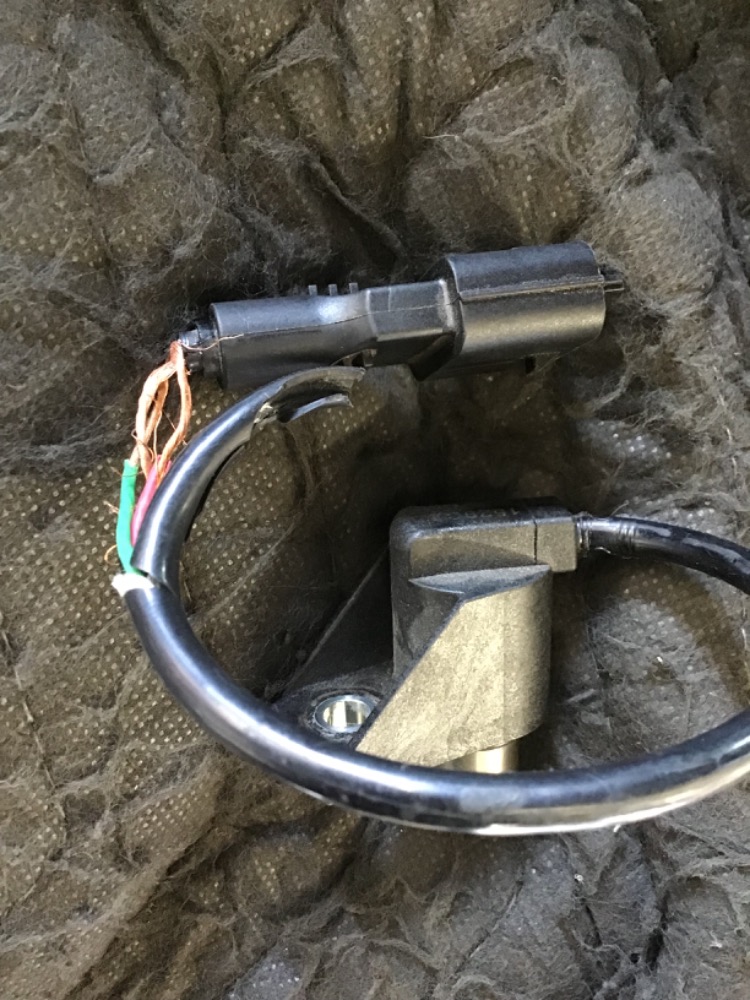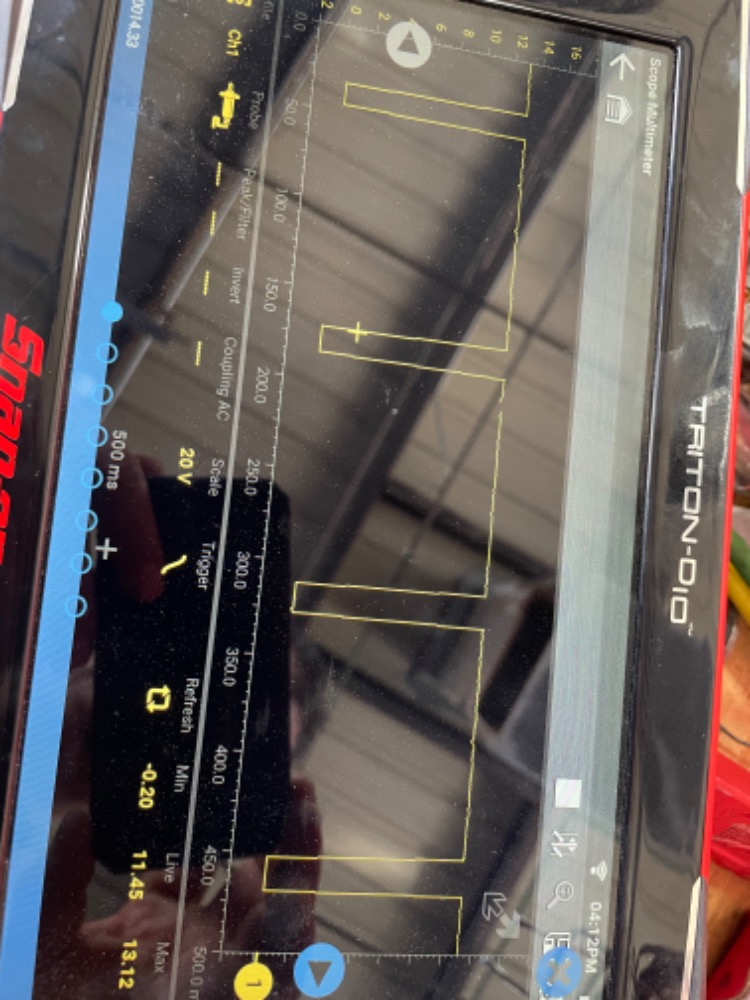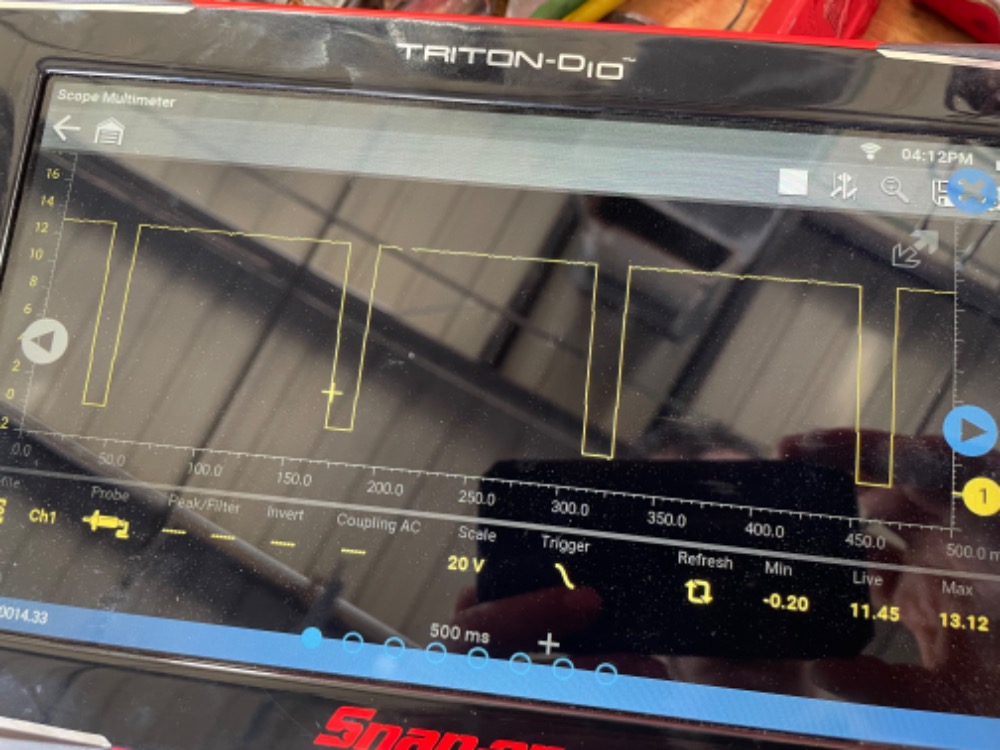*** Restricting New Posts to SD Premium Members ONLY *** (09 May 2025)
Just made a new account? Can't post? Click above.
Help us help you. By posting the year, make, model and engine near the beginning of your help request, followed by the symptoms (no start, high idle, misfire etc.) Along with any prevalent Diagnostic Trouble Codes, aka DTCs, other forum members will be able to help you get to a solution more quickly and easily!
2003 Cadillac CTS PO343, cam sensor high voltage.
- rpd1125
-
 Topic Author
Topic Author
- Offline
- Premium Member
-

Less
More
- Posts: 85
- Thank you received: 10
3 years 2 months ago #57295
by rpd1125
Replied by rpd1125 on topic 2003 Cadillac CTS PO343, cam sensor high voltage.
Yes. Test light lights on pink Wire at cam sensor. We have solid voltage
Please Log in or Create an account to join the conversation.
- rpd1125
-
 Topic Author
Topic Author
- Offline
- Premium Member
-

Less
More
- Posts: 85
- Thank you received: 10
3 years 2 months ago #57296
by rpd1125
Replied by rpd1125 on topic 2003 Cadillac CTS PO343, cam sensor high voltage.
Only one camshaft sensor on this vehicle
Please Log in or Create an account to join the conversation.
- Cheryl
-
- Offline
- Platinum Member
-

Less
More
- Posts: 1214
- Thank you received: 215
3 years 2 months ago #57297
by Cheryl
Replied by Cheryl on topic 2003 Cadillac CTS PO343, cam sensor high voltage.
I’d leave that ground hooked up pull cam sensor wave it in front of a piece of metal. Wrench screwdriver etc. see if anything changed. So what do you have on the signal wire only?
Please Log in or Create an account to join the conversation.
- rpd1125
-
 Topic Author
Topic Author
- Offline
- Premium Member
-

Less
More
- Posts: 85
- Thank you received: 10
3 years 2 months ago #57298
by rpd1125
Replied by rpd1125 on topic 2003 Cadillac CTS PO343, cam sensor high voltage.
I found what cause the problem to pcm. Unfortunately the pcm did not survive it. As you can see cam sensor harness was shorted. Shorting battery voltage to low ref and cam sensor signal.
Can’t even communicate with pcm anymore. Replacing cam sensor and new pcm is getting flashed now. Out of curiosity I started to check what sensors I could reach easily for internally shorted sensors and found cam sensor shorted internally showing continuity on pin 3 and 2 and 1. Split harness open and found this.
Will update
Can’t even communicate with pcm anymore. Replacing cam sensor and new pcm is getting flashed now. Out of curiosity I started to check what sensors I could reach easily for internally shorted sensors and found cam sensor shorted internally showing continuity on pin 3 and 2 and 1. Split harness open and found this.
Will update
Please Log in or Create an account to join the conversation.
- rpd1125
-
 Topic Author
Topic Author
- Offline
- Premium Member
-

Less
More
- Posts: 85
- Thank you received: 10
3 years 2 months ago #57300
by rpd1125
Replied by rpd1125 on topic 2003 Cadillac CTS PO343, cam sensor high voltage.
Ladies and Gentlemen we have fixed this one. After replacing cam sensor and new Pcm problemo fixed.
On this vehicle the reason it has 12 volts on pink wire is so that when cam crosses the sensor it pulls it down to 0. As you can see it will pull it from voltage to 0 on this one. We initially thought it was a 5 bolt pull down but it’s 12 volt pull down on this one. Vehicle is running and problem fixed. Shorted cam sensor ruined the pcm on this one
On this vehicle the reason it has 12 volts on pink wire is so that when cam crosses the sensor it pulls it down to 0. As you can see it will pull it from voltage to 0 on this one. We initially thought it was a 5 bolt pull down but it’s 12 volt pull down on this one. Vehicle is running and problem fixed. Shorted cam sensor ruined the pcm on this one
Please Log in or Create an account to join the conversation.
- rpd1125
-
 Topic Author
Topic Author
- Offline
- Premium Member
-

Less
More
- Posts: 85
- Thank you received: 10
3 years 2 months ago #57301
by rpd1125
Replied by rpd1125 on topic 2003 Cadillac CTS PO343, cam sensor high voltage.
Here is a better view of cam sensor waveform after fix
Please Log in or Create an account to join the conversation.
- VegasJAK
-

- Offline
- Platinum Member
-

- Silencing the Parts Cannon
Less
More
- Posts: 566
- Thank you received: 140
3 years 2 months ago #57341
by VegasJAK
"an open mind let's knowledge flow in and wisdom flow out for a man who has neither never listens to those who have both".
Replied by VegasJAK on topic 2003 Cadillac CTS PO343, cam sensor high voltage.
Thanks for the fix info... GM does use 12v or 5v pulldowns and with this one I noticed the wire colors are pink, green and ? for the CMP. All my data has them as pink, brn/why and tan. Was that an aftermarket pigtail? What engine was that?
"an open mind let's knowledge flow in and wisdom flow out for a man who has neither never listens to those who have both".
Being wrong doesn't bother me, it's being right and not understanding why that does
Please Log in or Create an account to join the conversation.
- rpd1125
-
 Topic Author
Topic Author
- Offline
- Premium Member
-

Less
More
- Posts: 85
- Thank you received: 10
3 years 2 months ago #57342
by rpd1125
Replied by rpd1125 on topic 2003 Cadillac CTS PO343, cam sensor high voltage.
It was not aftermarket. Something about mid year production but it was pink for 12 volt fused power, brown/white for signal and tan/black for low ref. You are right about both 12v and 5v pull downs. It’s not same on all. I had a 2014 suburban that had a 5v pull down on crank sensor
Please Log in or Create an account to join the conversation.
Time to create page: 0.479 seconds




